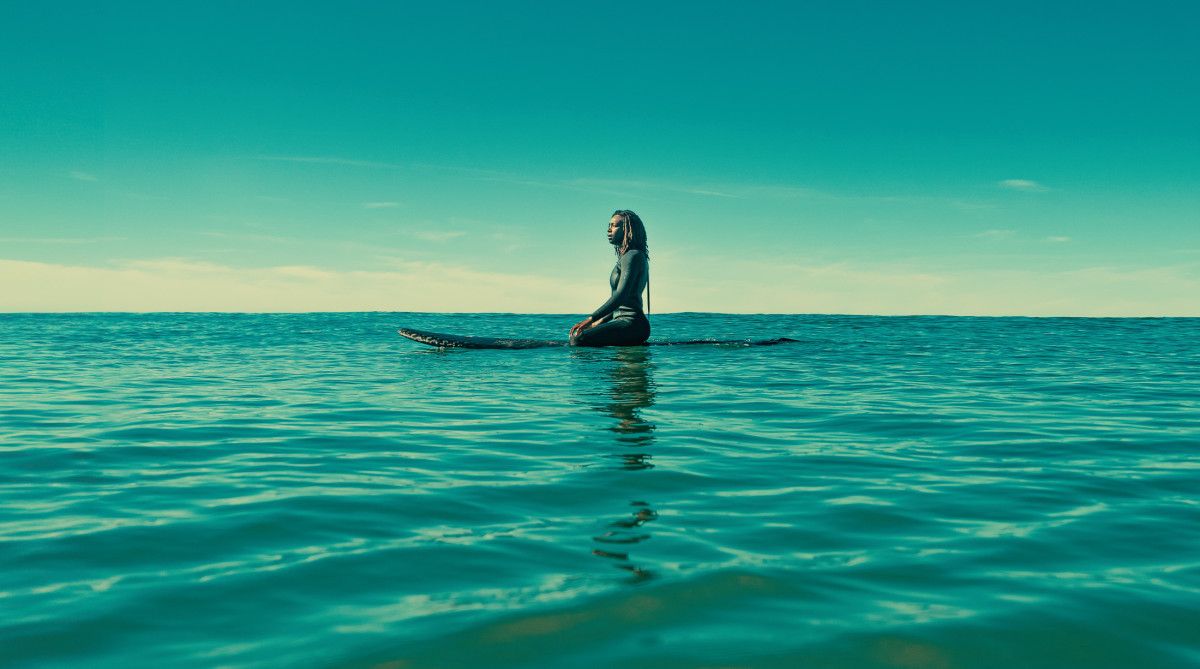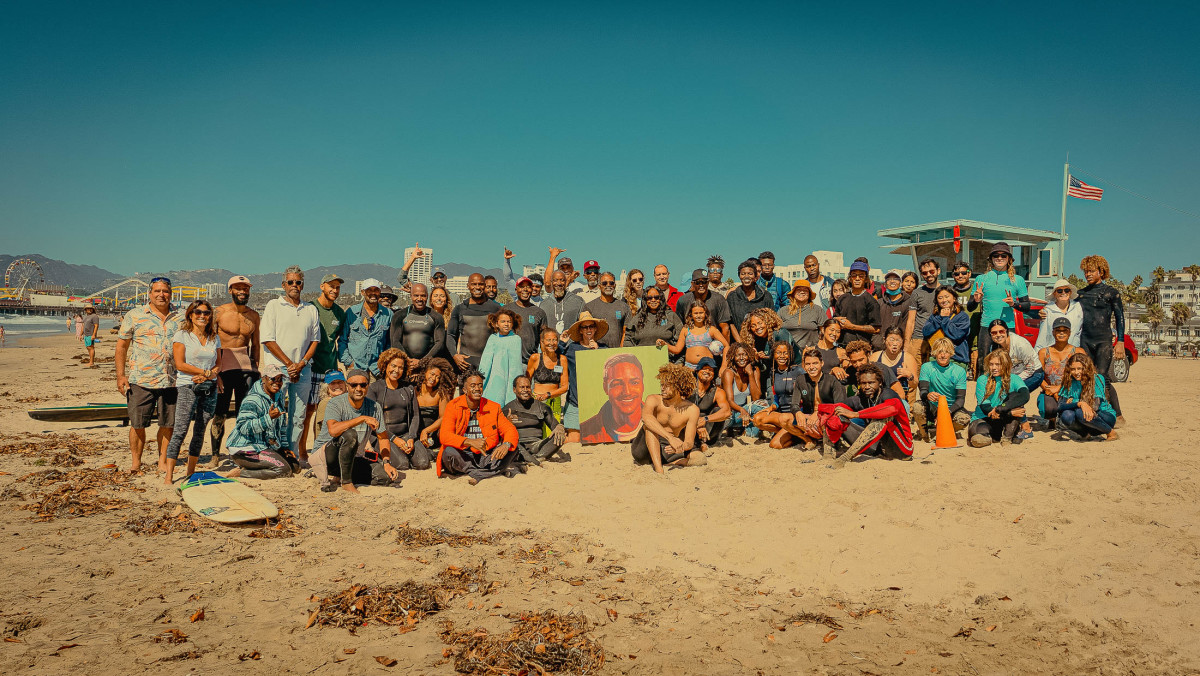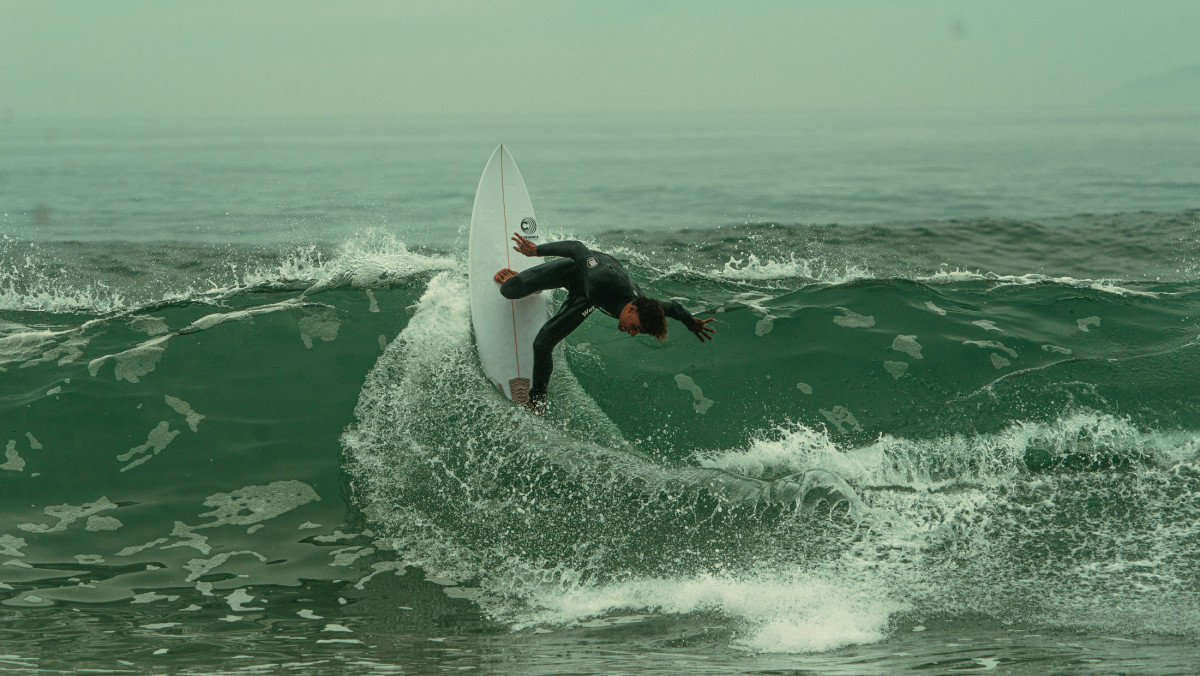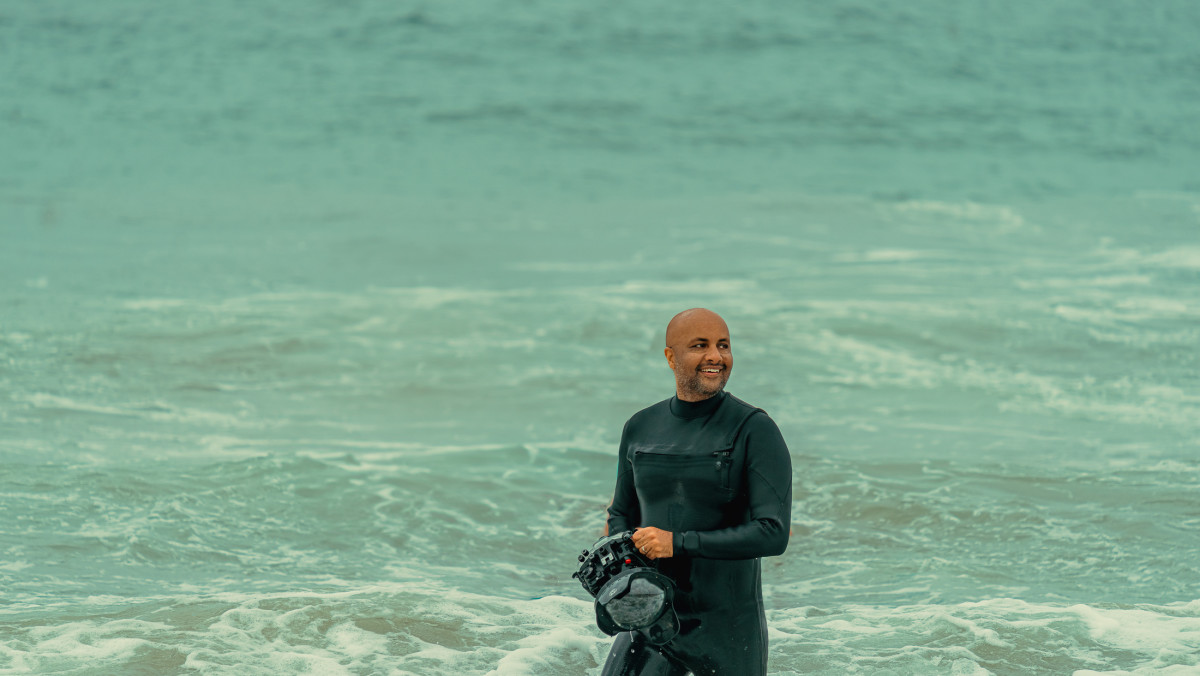
Mesfin
“It’s just a very fulfilling feeling … like I’ve found my purpose in life,” says filmmaker David Mesfin. “You know, you’re working in advertising. That’s great. But there are things that you have to do in life when you’re asked or you’re provoked and this was one of those things that I did.”
Some filmmakers put in years and years of work before they release something that changes people’s lives. As a Creative Director at INNOCEAN USA, Mesfin has designed award-winning marketing campaigns for the auto industry, but on his very first documentary, he struck nerves and hearts.
Wade in the Water: A Journey into Black Surfing and Aquatic Culture, which premieres on Vimeo and PBS Hawaii today, June 19th (Juneteenth, a federal holiday as of 2021) examines the obstacles that African Americans have overcome in finding a place in surfing and beach culture. But it also documents the strong relationships that cultures in pre-colonized Africa had with the ocean. The film even uncovers history that suggests a 1,000 year-old history of wave riding on the continent.
“I’m so excited for the way people are embracing it, the way people are learning about these stories that are their history, their connection to the ocean,” says Mesfin. “And they’re wanting to reconnect. That’s something that I’m hearing at every screening – you’ll always have one or two individuals that come to me and say, ‘Hey I just want to thank you. I didn’t know this part of our history. I didn’t know our connection to the ocean or surfing and this has really touched me.’”
After a recent screening, a young man and his girlfriend pulled Mesfin aside. Emotionally, he explained that he’d lived in Orange County his whole life but his family never took him to the beach.
“He told me, ‘I just didn’t feel like I fit in at the beach,’” explains Mesfin. “He felt almost traumatized. He just needed to go back and reconnect and take his own family.”

Wade In The Water
Leaning on the work of History PhD Dr. Kevin Dawson and others, the film presents accounts of European explorers who put on record the skilled watermen they encountered – who swam, paddled ocean canoes and even rode waves for enjoyment, specifically in West Africa. On coastlines all over the world, cultures celebrate their seafaring roots. But that history here was mostly erased from Africa.
Related: Africans Surfed Long Before Bruce Brown Showed Up
This film is not an end-zone dance for the discovery that Africa is the birthplace of surfing. It’s a consciously balanced presentation of history and spirituality that breaks down a myth across modern societies that people of African descent don’t have a connection to the sea and the waves.
Through deep dives and oral history, people of color describe the context in which slavery, segregation, Jim Crow and institutionalized white supremacy kept them away from water, beaches and ultimately surfing. A lot of the history is only a few decades old. For those who simply explain a lack of black faces in the surf world as, “just not part of their culture,” the film makes it very clear that this exclusion was an intentional function of racism. Mesfin goes on to explore ugly attempts to keep non-whites away from beaches, those of African descent who did paddle their way into surf history and others who persisted and the benefits they’ve gained from it.
“For people who haven’t had access to the water, seeing an image of someone who looks like you out in the waves is so powerful,” adds Mesfin. “That’s the whole point of Wade Into the Water – it’s seeing us in the context of history. That image wasn’t available to most people. Being seen is everything.”

Wade in the Water
“At one time, the maritime industry in the US was 50% enslaved people out working on ships. They understood the ocean as much as white sailors, or sometimes more. They were very much connected to the ocean because they were West Coast Africans,” says Mesfin, who’s research for this film has uncovered layer after layer of rich oceangoing history that has been buried. From slave trade to Jim Crowe to the Civil Rights Movement to the advent of the Black Surfing Association the story unfolds in concise tapestry, as told by those who lived it.
Mesfin is originally from Ethiopia. He grew up in St. Augustine, FL. That idyllic surf town is was also home to the Monson Motor Lodge, where the owner famously poured hydrochloric acid into the hotel pool when civil rights activists went for a swim to protest segregation. Mesfin now lives and surfs in Los Angeles, where African American pioneers and families have been part of the surf community. It wasn’t until research for the film that he started to see how his personal history threaded through so many significant locations to the Black surfing experience.
Being his first documentary, Mesfin learned many of the mechanics of filmmaking as he went. Throughout the process, he met Beyin Abraha, Teferi Seifu and Michael Warner, who would be his executive producer and producer/editor.

Wade In The Water
Mesfin doesn’t approach Black people or even Black surfers as a monolith. The over-arching theme comes through as they speak of their unique connections to the sea.
“It was very important to me to embrace individuals by who they are and how they wanted to express themselves,” says Mesfin. “There are people that I had conversations with that are all about Black excellence. They don’t look back into the past. They don’t look at the trauma that we’re going through. And you have to respect that in the context of surf culture. People have different points of view just like right wing or left wing. What I’ve come to realize is the tolerance we all need to have for respecting people’s opinions and views – and stating your opinion as well in the midst of it – pushing humanity forward in a way where we all can coexist.”
The film will also be released on Comcast’s Black Experience on Xfinity platform and Xumo Play on August 1st.
Related: ‘Wade in the Water’ Shines Light on Black Surf Culture

